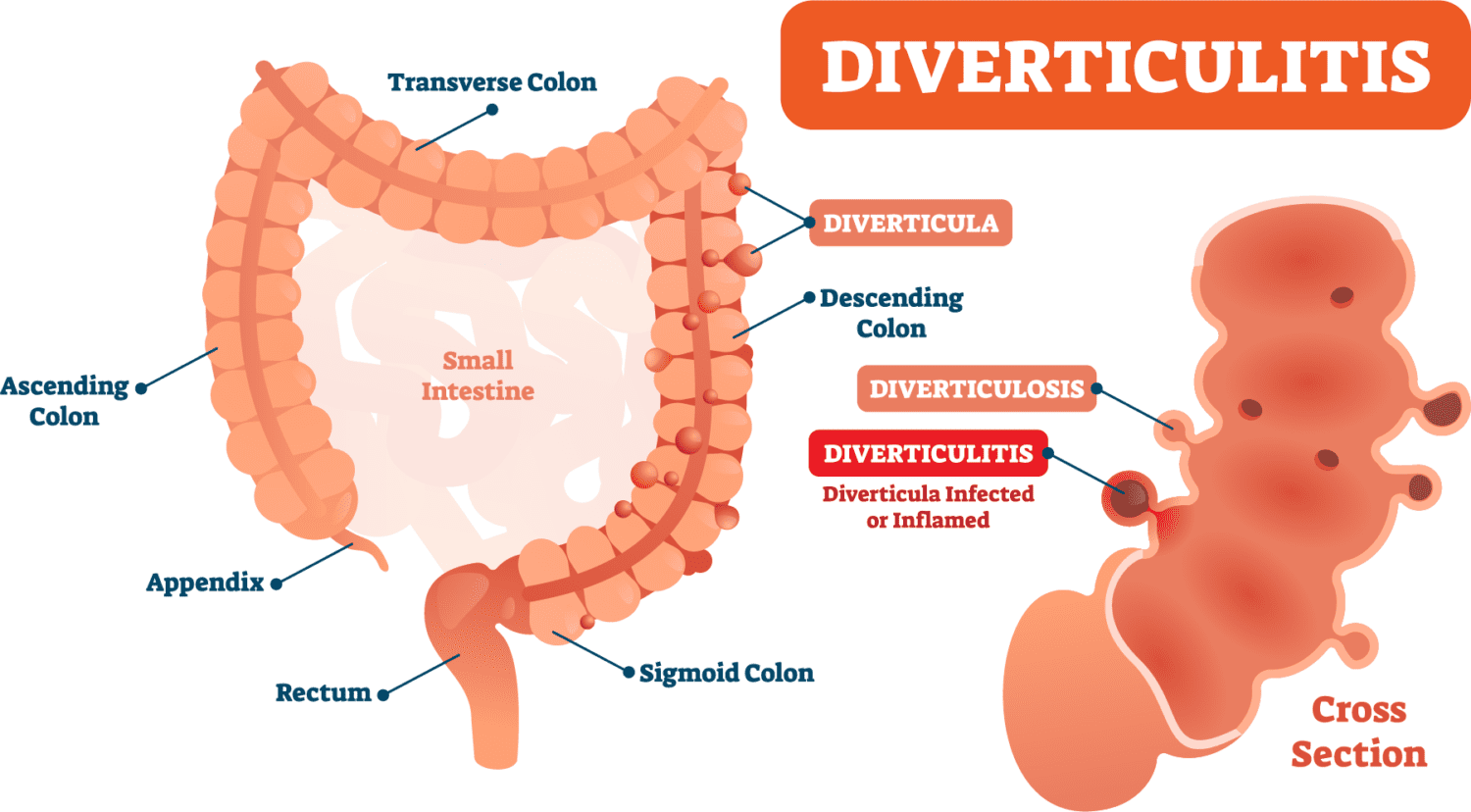Relief for Diverticulitis: Nurturing a Happy Gut

Are you struggling with diverticulitis and looking for natural ways to find relief? You've come to the right place! In this article, we will explore how nurturing a happy gut can help treat diverticulitis. This common condition occurs when small pouches, known as diverticula, form in the lining of the digestive tract, typically in the colon. While there are various medical treatments available, incorporating natural remedies into your routine may provide additional support and promote overall gut health. So, read on as we discover the secrets to alleviating diverticulitis naturally.
1. Understanding Diverticulitis
Diverticulitis is a common digestive condition that occurs when small pouches, called diverticula, develop in the lining of the colon. These pouches form when weak spots in the colon's muscles give way under pressure. Although diverticula themselves may not cause any symptoms, when they become inflamed or infected, it leads to the onset of diverticulitis.
The exact causes of diverticulitis are not clearly understood, but certain factors may increase the risk of developing this condition. A diet low in fiber, which can lead to constipation and increased pressure in the colon, is believed to play a role. Additionally, aging, obesity, lack of exercise, and smoking are also considered risk factors for diverticulitis.
When a person experiences an episode of diverticulitis, they may exhibit various symptoms such as abdominal pain (usually on the left side), bloating, nausea, vomiting, fever, and changes in bowel habits. In some cases, complications like abscesses, perforations, or fistulas can arise, requiring immediate medical attention.
Understanding the nature of diverticulitis is crucial for effective management and treatment. By recognizing the risk factors and symptoms, individuals can take steps to mitigate the occurrence of diverticulitis episodes and seek appropriate medical assistance when necessary.
Natural Remedies for Diverticulitis
Probiotics: One natural way to help relieve diverticulitis symptoms is by incorporating probiotics into your daily routine. Probiotics are beneficial bacteria that can help promote a healthy gut. They can be found in certain foods like yogurt, sauerkraut, and kimchi, or taken in supplement form. By supporting the balance of good bacteria in your digestive system, probiotics may help alleviate inflammation and improve overall gut health.
High-Fiber Diet: Consuming a diet rich in fiber can be an effective way to manage diverticulitis symptoms. Including foods like fruits, vegetables, whole grains, and legumes can help add bulk to your stool and make it easier to pass. This, in turn, may reduce pressure on the diverticula and relieve symptoms. However, it's important to gradually increase your fiber intake to prevent digestive discomfort. Remember to drink plenty of water to help fiber move through your digestive system smoothly.
Herbal Remedies: Certain herbs have been traditionally used to support gut health and ease symptoms of diverticulitis. For example, slippery elm, marshmallow root, and chamomile are known for their soothing properties and may help reduce inflammation in the colon. These herbs can be taken in the form of teas or capsules, but it's best to consult with a healthcare professional before adding them to your routine, especially if you're taking any medications.
Remember, while natural remedies may offer some relief, it's essential to consult with your healthcare provider for a proper diagnosis and to discuss the best treatment plan for your specific condition. These remedies should not replace medical advice or prescribed medications.
3. Maintaining a Healthy Gut
Nurturing a happy gut is essential in managing and preventing diverticulitis. Here are three key habits you can adopt to maintain a healthy gut:
Balanced Diet: Consuming a balanced diet is crucial for promoting gut health. Focus on incorporating fiber-rich foods such as fruits, vegetables, whole grains, and legumes into your meals. These foods provide essential nutrients and promote regular bowel movements, reducing the risk of diverticulitis flare-ups. Additionally, staying hydrated by drinking an adequate amount of water throughout the day supports proper digestion and overall gut function.
Regular Exercise: Physical activity plays a significant role in maintaining a healthy gut. Engaging in regular exercise helps stimulate digestion and promotes bowel regularity. Aim for at least 30 minutes of moderate-intensity exercise, such as brisk walking or cycling, most days of the week. Not only will exercise benefit your gut health, but it also contributes to your overall well-being.
Stress Management: Chronic stress can negatively impact gut health and increase the risk of diverticulitis symptoms. Implementing effective stress management techniques, such as meditation, deep breathing exercises, or engaging in activities that you enjoy, can help reduce stress levels and promote a healthy gut. It is important to prioritize self-care and find healthy outlets for stress relief to support your gut health.

By adopting these habits and nurturing a happy gut, you can effectively manage and potentially prevent diverticulitis symptoms. Incorporating diverticulitis remedy balanced diet, regular exercise, and stress management techniques into your lifestyle can greatly contribute to maintaining a healthy gut and overall well-being.
